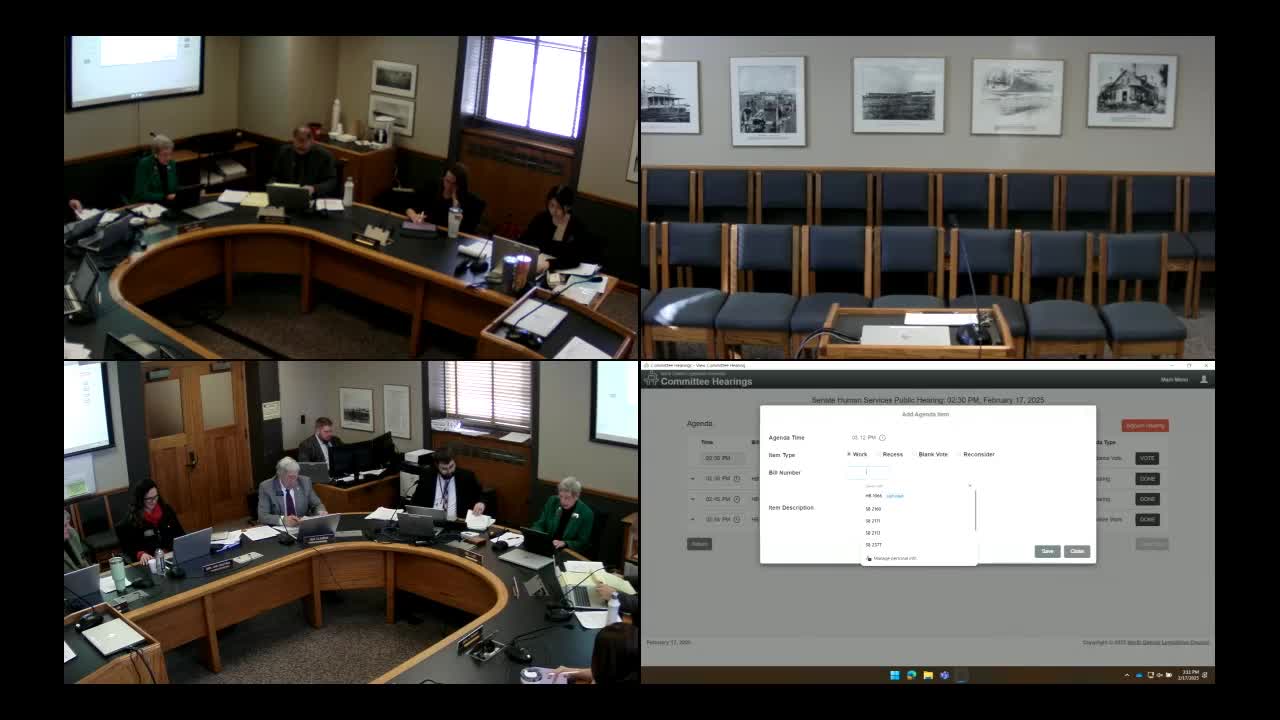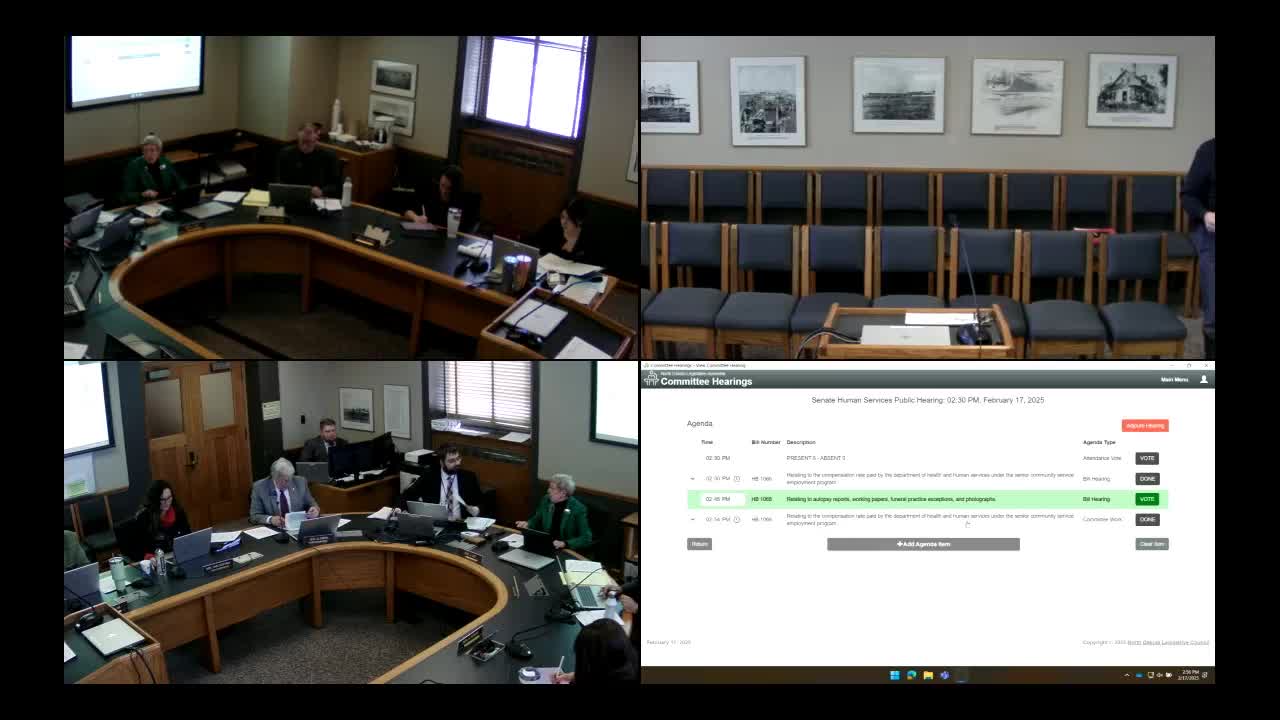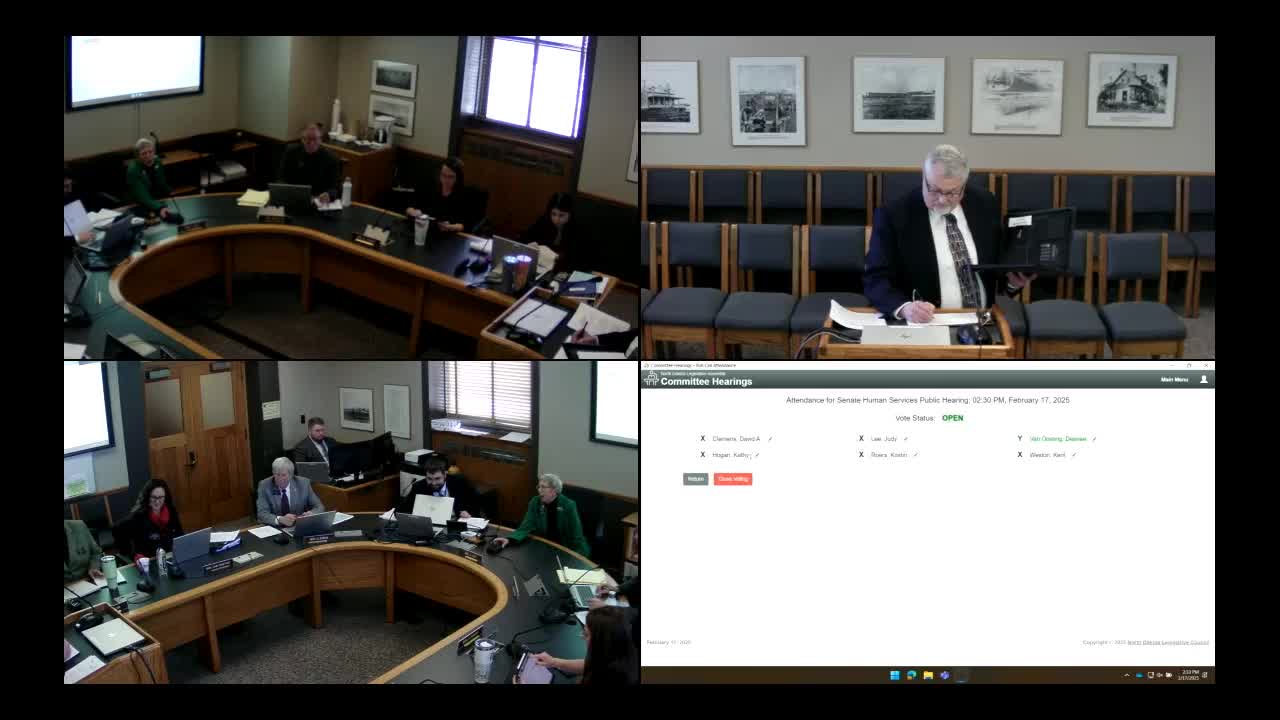Article not found
This article is no longer available. But don't worry—we've gathered other articles that discuss the same topic.

Senate committee approves amendment, then passes Senate Bill 2297 on informed consent for incapacitated individuals

Committee consolidates autopsy-record rules and amends funeral-practice language in House Bill 1068

